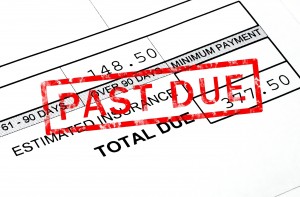 Do you know what Chapter 13 bankruptcy is? Well, it is the method how you can rearrange the outstanding debts that you have incurred. You need to know that Chapter 13 bankruptcy enables the debtor to get assistance from the court with a suitable repayment plan. The debtors should have sufficient disposable income so that they can file for Chapter 13 bankruptcy.
Do you know what Chapter 13 bankruptcy is? Well, it is the method how you can rearrange the outstanding debts that you have incurred. You need to know that Chapter 13 bankruptcy enables the debtor to get assistance from the court with a suitable repayment plan. The debtors should have sufficient disposable income so that they can file for Chapter 13 bankruptcy.
In case of Chapter 13 bankruptcy, you need to keep your property, but repay either a part or all of your outstanding debts within a time period of three to five years. Since you pay off almost all of your outstanding debts with time in case of Chapter 13 bankruptcy, it is also known as reorganization bankruptcy. Make sure you are aware about Chapter 13 bankruptcy laws so that you do not have to face any difficult when you file for this kind of bankruptcy.
The eligibility criteria for Chapter 13 bankruptcy
You should know that everyone cannot file for Chapter 13 bankruptcy. This is because in this kind of bankruptcy, you need to use your earnings to pay off at least some or if possible, all of your debts. For this, you require proving the court that you can manage to make the payments. In case your income is extremely low or not regular, then the court may not enable you to file for this bankruptcy.
If you have enormous debt, then you’ll not be able to qualify for this type of bankruptcy. The secured debts you owe should not go beyond $1,149,525. In case of unsecured debts, it should be less than $383,175. Secured debts are the ones that provides the creditor the right to take away your property or car if, by chance, you do not pay off the debt on time. On the other hand, unsecured debts are your credit card dues or medical bills that do not give any right to your creditors, even if you don’t repay them.
The process of Chapter 13 bankruptcy
Before filing for Chapter 13 bankruptcy, you must obtain counseling from an agency that is approved by the office of the U.S. Trustee. These agencies will charge a certain amount of fees from you for their services. However, they must offer counseling free of cost or at a decreased rate if you aren’t able to pay their high fees.
Besides this, you need to pay them the fees for filing bankruptcy. This amount may be $274. You may appoint a good and experienced bankruptcy attorney to know more about Chapter 13 bankruptcy laws and the process.
The repayment plan for Chapter 13 bankruptcy
Chapter 13 bankruptcy has a repayment plan with which you can pay off the outstanding debts. Your repayment plan states everything in details as to how you’re going to pay all of your debts. No official form is required for this plan, however you’ll find that many courts have their own forms.
In a Chapter 13 plan, you must pay off some of your debts completely. These debts are known as priority debts. This is because they are very much important so that you can reach the bankruptcy repayment. Priority debts consist of alimony, child support, salary that you need to pay to your employees and some income tax compulsions. Additionally, your repayment plan must consist of the regular payments that you’ll be making on the secured debts like mortgage or car loan.
The repayment plan must explain any disposable earnings you’ve left after making the needed payments will be going towards paying off your unsecured debts like credit card dues or medical bills. In certain cases, you’ll not have to pay off these debts in full. Then, you will only have to explain that you’re putting your outstanding income towards the repayment.
-The 713 Training Team
www.713Training.com
1-800-535-9984






